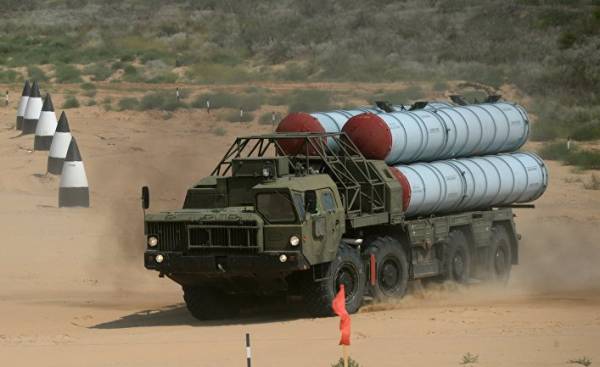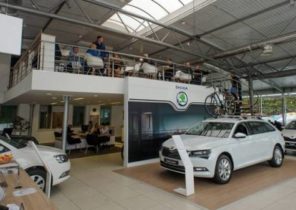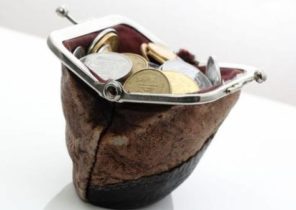
Envy and complexes know no borders: the Croatian media and politicians, trying to threaten the Serbian-Russian cooperation in the field of armaments, ignoring the facts that are at one time sounded, and the claim that in 90-e years the Russian had been their friends and even gave them anti-aircraft missile system s-300.
I have a few Russian MiGs to Croatia, reigned the universal panic and fear, but, more importantly, arose the jealousy of the cooperation of Serbia and Russia. There are no sectors where Croatia may show complex in relation to Serbia, which is sometimes comical, just like Fellini. In the film “Amarcord” uncle of the protagonist, napusti on the person whose words cannot be questioned, commented on the snow in the seaside town: “He’ll never last”. And the next day the city was completely covered with snow and covered with snow drifts. The same anger and jealousy two years ago showed the Croatian Minister of defence Ante Kotromanovic after the statement by Vucic that Serbia will buy Russian some weapons. “It is impossible that Serbia bought weapons from Russia because she is no money. They have no funds for equipping and modernization,” — said Toromanovic, noting that the purchase is impossible also because of the EU sanctions against Russia. However, Serbia agreed with Russia on the transfer of MiG-29 fighters, modernized tanks T-72 and BRDM.
And when Serbian Prime Minister Aleksandar Vucic said in Moscow discussed with Russian President Vladimir Putin, and even the purchase of anti-aircraft missile systems s-300, the Croatian media in fear catapulted the information that Russia demands payment for the delivered weapons, including the powerful s-300, which Moscow allegedly sold the Croats between 1992 and 1997.
Manipulation of Zagreb, the refusal of Russia
Has already had the stuffing of such information. Its release coincided with the changes in the status of the Serbian-Russian negotiations on the sale of weapons for the army of Serbia. However, the publicity was considerable less. So, in November 2016 published an interview with a former official representative of the office for the protection of the constitutional order of Croatia, who was present at the negotiations about the price and the details of the transfer arms, Marin Timelike. According to him, Russia was a friend and ally of Croatia and put her arms in the early 90-ies of the last century.
Then the reason for the publication was the meeting of the Croatian businessman, trading in arms, Call Subaqua with the Russian Ambassador in Croatia, Anwar Azimov. Of the Croatian political and public media immediately interpreted this meeting as Moscow’s pressure on Croatia to force to pay money for imaginary supply of systems s-300.
And what could reinforce this view better, if not the statement of the former President of Croatia. Ivo Josipovic, is known not only as former President, but also as the author of the Croatian lawsuit on charges of Serbian genocide, the publication said “Vecheri sheet” that allegedly putting pressure on Croatia, “Russia wants to remind Zagreb that Moscow was arming the Croats” during the war in the former Yugoslavia.
However, if you carefully read the article published in “Vecheri sheet”, it turns out that the Russian Ambassador Azimov denied any cooperation with businessman Subatom, saying that “the Russian Embassy was never invited to talk about the supply of weapons.” I must say that in fact Asimov was invited to this meeting.
The Ministry of foreign Affairs of Russia reacted harshly and denied all the information published in the Croatian media, and an official statement on the website of the foreign Ministry was placed in the “false publications” on Russia. The statement said: “it is No secret that in the period (1991 — 1995) a large quantity of arms, ammunition and military equipment of Soviet production were in the countries of Central and Eastern Europe and the former Soviet republics. As far as we know, dishonest Croatian businessmen used this circumstance to supply Zagreb. The Russian Federation has nothing to do with it, of course, never had. Meanwhile, the propaganda campaign built on malicious speculation around the selected stuffing is explicit: the aim is to cause damage to Russia’s cooperation with friendly countries in the Balkans, complicate the cooperation with our partners, first of all Serbia”.
Croatian media and politicians like Josipovic “missed” or “forgot” the fact that fighters, helicopters and other aircraft and anti-aircraft missiles, anti-tank system, a significant quantity of infantry weapons and infantry, artillery and rocket ammunition were acquired mainly on the international black market between 1991 and 1995.
The story of the crime triangle
The main role in this illegal and completely opaque arms purchases and military equipment has played a state firm “RH Alan”, which until 2000 was headed by the assistant Minister of defence General Vladimir Zagorets. By the way, in 2006 in Croatia Zagorica Affairs are being conducted in connection with opaque spending of public funds in the purchase of arms.
This time also deliberately concealed the fact that Croatia bought weapons not from Russia, and the shady businessman Call Zubakha and his firm Vinsli Fajnns Limitid, which are still in a legal battle with Croatia due to unpaid deliveries. In 2002 Subak Loudly along with the company British virgin Islands, founded by Czech arms dealer Peter Pernicka, filed a lawsuit, demanding the payment of the debt for supplied Russian missile system.
Subak refers to a document on the future contract, which is Pernicka also brought to Croatia in 2000, and for which the Ministry of defence of the Republic of Croatia undertook to purchase his company-300 for $ 200 million. This document is signed by Gojko of Lusaka, which was at that time Minister of defence of Croatia.
Russian Ambassador in Belgrade Alexander Chepurin wondered whether the story about s-300 “thrown” in the media every five to six years, although it is well known that criminal activity was carried out in the framework of a triangle “destination country — the mediator — Ukraine”. “Representatives of the Croatian government has several times publicly admitted that these weapons came from Ukraine. That it is unfit for use. That they were deceived. Later parts of this system were sent to a third country. Look on the Internet, look at WikiLeaks,” said Chepurin.
This, for example, the newspaper “Utari sheet” wrote back in 2010, when it was announced that the s-300 came in from Ukraine. Anti-aircraft missile complex were demonstrated at the parade before the operation “Storm” in summer 1995, apparently to force the Belgrade authorities to abandon a possible intervention during the “Storm.” Serbia, of course, and in a head did not come to send MiGs to Zagreb, because NATO has closed the skies over Croatia and Bosnia. When at that time, the aircraft of the Republic of Srpska is still up in the air, NATO hit him.
The system was understaffed and was not functioning. Even if it was complete, in Croatia no one knows how to handle it. Moreover, the complex, which was demonstrated in Yarun on parade, “different” from the original. Four packages, which were similar to the packages 5В55Р missile system s-300, were placed on the tractor MAN, not for charging the car 22Т6-2Е2 on the chassis Ural-532361-1012 or truck to transport four packages 5П32 type 5Т58-2 on the base of the truck KRAZ-260.
Travel overseas
According to many sources, in 1997 Croatia had refused to equipping the s-300, so in subsequent years, was looking for his buyer. Interest was shown by Iran, but the supply was prevented by the United States. Then I became interested in Turkey, who wanted to meet the purchase of this complex to the actions of Greece, which also bought s-300 in Cyprus. The deal did not materialize, and the anti-missile system lost in 2004, when he was allegedly loaded on Board in Rijeka and sent in the direction of the United States.
The trail suddenly seemed to a dispatch of 23 November 2003. From the message of the clear interest of the Pentagon in the Russian weapons that experts believe are more powerful than their “patriot”. A telegram published by WikiLeaks, and it says that the then us Ambassador in Zagreb Ralph Frank told Secretary of defense Donald Rumsfeld about how he promotes the idea the transfer of s-300 from Croatia to America. The dispatch also emphasized that the Croatian s-300 system “is not completed, but very necessary”, because it can help the U.S. air force in the testing of future generations of American fighters.
This version was supported by the Zagreb newspaper “Vecheri sheet”, claiming that Zagreb sent the s-300 over the ocean. At the hearing, the arms dealer Call Subaku this was confirmed by the former President of Croatia Stjepan mesić.
Today this newspaper publishes a list of arms and military equipment, which Croatia allegedly purchased from the Russian Federation through arms dealers and in defiance of international embargoes in the early 90s. we are Talking about 16 thousands of tons of weapons and equipment, which were delivered by Russian transport aircraft directly to the airport of Pula. As for the complexes s-300, Zagreb analysts claim wherever they were taken, anyway this was done with the consent of Russia, which in those days was not the same as today under Vladimir Putin. In that period, according to analysts, Boris Yeltsin was interested in the money, and he wanted to please the West. Contemporary Russia have very different priorities.
If you recall a time when relations in the Balkans only complicated, Yeltsin, a former controversial figure, was to growl, but all business was controlled by the then foreign Minister Andrei Kozyrev. Today he resides in a comfortable and safe American Florida and represents the Russian opposition, which with the support of the Americans trying to overthrow President Vladimir Putin to put Russia among the “truly democratic and free countries”, making her the image of Western democracies. In the days of Yeltsin, Kozyrev pursued its Pro-American policy, joining those of all the misfortunes in the Balkans blamed the Serbs. He was called Mr. “Yes,” as he was agree with everything that was offered and wanted in Washington, as opposed to the more famous and much more the distinguished Minister for foreign Affairs of the USSR Andrei Gromyko, who was considered Mr No.
Kozyrev: “the art of cooperation”
About this 17 years ago in an interview with the Belgrade magazine “NIN” said Konstantin Nikiforov, a former adviser to Boris Yeltsin. According to him, Kozyrev was among the Russian “Europeans”, “the art of cooperation” which are often seen as “pandering to the West”, launched by Gorbachev and Shevardnadze.
Speaking about the former Yugoslavia, Nikiforov noted the “unacceptable ignorance of the region, its history and the essence of local military conflict.” Kozyrev “confuse Slovenia with Slavonia, thought that all people in this region, the Orthodox, do not know where is Dubrovnik. He arrogantly and condescendingly treated the Serbs cynically called them “our clients.” He never bothered to try to understand these people.”
“The hidden activities of the Minister Kozyrev covered with darkness. Having a good command of the English language, he preferred to talk face to face — even without an interpreter. “He was prone to a certain kind of “beneficial fraud”,” — said Nikiforov.
Often Kozyrev no longer trust Western information and interpretation rather than reports of private services. Nikiforov refers to the case of two strange explosions in Sarajevo which were necessary for NATO bombing of Serb positions in Bosnia. Kozyrev’s Pro-American policy was so veiled that many Russians were upset when the influential head of the security service of Yeltsin’s General Korzhakov persuaded grandfather to replace the Minister of foreign Affairs.
Although from the decomposition of eltsinovskoy Russia “flowed” and classified information, and weapons, it is unlikely that in the case of the s-300 it happened that way. Understaffed system gave the Ukrainians the Croats, as shortly before the foisted a defective MiGs.
The Ukrainian Prosecutor’s office already is conducting an investigation at the plant “Ukrspecexport” in Odessa. Also under investigation in the case of the repair of 12 Croatian MiGs. It is suspected that the plant’s management had falsified repair documents and equipment. Also it is suspected of corruption and many other illegal actions related to the work of the enterprise. This is especially true after a history of repair of the MiG-21 armed forces of Angola who was “sent abroad”, but in Angola and was not hit. Considering the case of the Angolan Instantly, which simply replaced, Croatia has a suspicion that the same thing happened to her aircraft.
On the other hand, the press Secretary of the President Dmitry Peskov, commenting on the intention of Serbia to buy Russian anti-aircraft missile system s-300, said that the theme of military-technical cooperation is constantly on the agenda at the highest level. This is particularly important at a time when the Prime Minister of Serbia Alexander survived said that Belgrade needs two battalions of antiaircraft missile systems and the regimental command post, the purchase of which he had discussed with Russia and Belarus. Us — the joy, the neighbors — pity.







